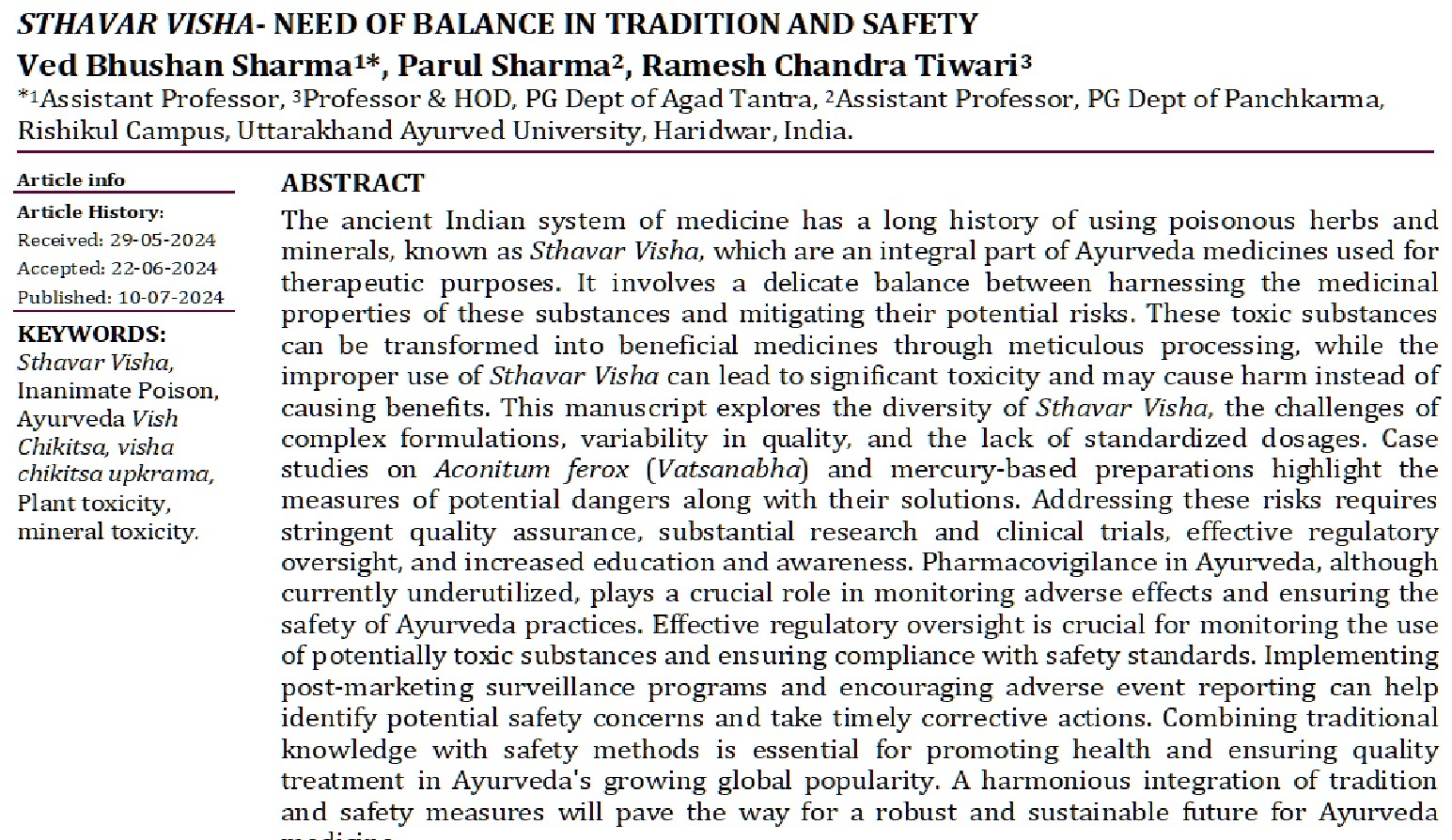Sthavar Visha- Need of Balance in Tradition and Safety
DOI:
https://doi.org/10.47070/ayushdhara.v11i3.1621Keywords:
Sthavar Visha, Inanimate Poison, Ayurveda Vish Chikitsa, visha chikitsa upkrama, Plant toxicity, mineral toxicity.Abstract
The ancient Indian system of medicine has a long history of using poisonous herbs and minerals, known as Sthavar Visha, which are an integral part of Ayurveda medicines used for therapeutic purposes. It involves a delicate balance between harnessing the medicinal properties of these substances and mitigating their potential risks. These toxic substances can be transformed into beneficial medicines through meticulous processing, while the improper use of Sthavar Visha can lead to significant toxicity and may cause harm instead of causing benefits. This manuscript explores the diversity of Sthavar Visha, the challenges of complex formulations, variability in quality, and the lack of standardized dosages. Case studies on Aconitum ferox (Vatsanabha) and mercury-based preparations highlight the measures of potential dangers along with their solutions. Addressing these risks requires stringent quality assurance, substantial research and clinical trials, effective regulatory oversight, and increased education and awareness. Pharmacovigilance in Ayurveda, although currently underutilized, plays a crucial role in monitoring adverse effects and ensuring the safety of Ayurveda practices. Effective regulatory oversight is crucial for monitoring the use of potentially toxic substances and ensuring compliance with safety standards. Implementing post-marketing surveillance programs and encouraging adverse event reporting can help identify potential safety concerns and take timely corrective actions. Combining traditional knowledge with safety methods is essential for promoting health and ensuring quality treatment in Ayurveda's growing global popularity. A harmonious integration of tradition and safety measures will pave the way for a robust and sustainable future for Ayurveda medicine.
Downloads

Downloads
Published
Issue
Section
License
Copyright (c) 2024 AYUSHDHARA

This work is licensed under a Creative Commons Attribution-NonCommercial-ShareAlike 4.0 International License.


